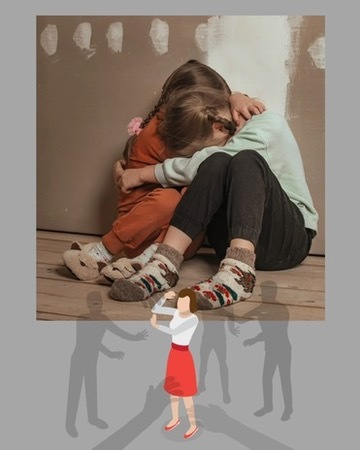Report Highlights - Schools need better systems to support students experiencing family and domestic violence
Angie White
07 June 2025, 2:13 AM

A Monash University study has recommended comprehensive support systems for Australian school students who are experiencing family and domestic violence.
With schools playing a critical role in children’s lives, being where they spend their second most time, the study says family and domestic violence support and intervention is a must.
But the research published in the Australian Journal of Social Issues said more needs to be done to provide schools with the skills to intervene earlier to prevent future harm and to support the children so adversely impacted by domestic and family violence.
“Drawing on findings from a national survey of 1651 young people who reported experiences of DFV, the research enhances current understandings of how DFV impacts education and the effectiveness of school-based help-seeking for young Australians experiencing DFV.
“Centring the voices of young victim-survivors, our findings question the degree to which schools are presently equipped to recognise, respond to and support students who experience DFV,” the research paper reports.

“Educators seek to connect child and family services to endeavour to provide multi-faceted support that includes housing, education, counselling, food provision and safety,” according to a western area teacher.
“Educators play a significant role in the child’s life through daily check in’s, following up support provision, family support around educational decisions and pathways an academic & social learning.
“Undertaking High Impact Learning (HIPL) including Trauma Informed Practises is one way in which Educators are equipping themselves to provide additional layers of support, currently this training is optional, although would be invaluable for all school staff,” she said.
The research has found that less than one in five students (12-17 per cent) reported their experience of violence to someone in their school community, with students resorting to skipping school as a coping method and saying that they feel dismissed or retraumatised by school staff if they do report.
One western area high school student who wished not to be named, said while she has not experienced family or domestic violence, she knows of fellow students who have.
“I have heard kids talk about stuff happening at home, who just shrug it off or make a joke of it. Rarely do they ever tell the teachers, but they will tell their friends.
“I can see they feel ashamed and frightened and it’s hard to know what to say.
“I think it is just as important to educate the kids at the schools, because often it is us giving advice to each other and sometimes we are not sure of the best advice to give and we don’t want to appear to be dobbing by telling teachers,” She said.
A former Western area Assistant Principal says schools are nowhere near equipped to cope with these issues.
“I agree that schools and teachers are not, nor are the few counsellors allocated to school settings equipped to recognise, respond to and support students through DFV experiences.
“Yet schools would be one of the richest ‘playgrounds’ to source genuine information to formulate programs, systems and initiatives to combat DFV,” she said.

Researcher Kate Fitz-Gibbon, Professor at Monash Business School - Photo courtesy Monash University.
“Schools should be supported to provide trauma and family and domestic violence informed training to all school staff, so that they feel confident to respond appropriately to disclosure from students,” said Researcher Kate Fitz-Gibbon, Professor at Monash Business School.
“The impacts of family and domestic violence are nuanced and complex. In addition to places of learning, schools should be safe spaces for students to share experiences of abuse, seek help and be connected with support.
“The experiences of young people in our study also demonstrate why flexible attendance and academic policies for students impacted by DFV would be beneficial," said Professor Fitz-Gibbon.

Steven Roberts, Professor and Head of Monash School of Education, Culture and Society - Photo courtesy Monash University.
“Young victim-survivors reported family members who withheld the tools they needed to complete homework, like an internet connection or access to technology, as part of their pattern of abuse,” said Researcher Steven Roberts, Professor and Head of Monash School of Education, Culture and Society.
“Other young people reported experiences of exhaustion from being up all night listening to family members fighting, describing being unable to concentrate during class.
“Without effective school-based supports to support school-based engagement, young victim-survivors of domestic and family violence are at higher risk of disengagement.”
“The impacts of family and domestic violence are nuanced and complex. In addition to places of learning, schools should be safe spaces for students to share experiences of abuse, seek help and be connected with support,” said Professor Fitz-Gibbon.

